It’s honestly a mystery for many dog owners. How does your pooch go out smelling like a flower and come back absolutely stinking?
We adore our pets, but the bad odour after an outdoor adventure is sometimes unbearable. Turns out, there are several reasons as to why it happens.
Generally, dogs who stink after coming home from outside have played in the mud or other bad-smelling environments. However, it could also result from humidity, residue of outdoor pollutants, or even the body reacting to an allergen.
While some smells might be easy to identify, others might perplex you.
Don’t worry, though. All the reasons for your dog smelling bad after coming from outside can be categorised into a handful of factors. And once I help you figure out why, we’ll turn your stinky pooch into a rose flower.
1. It’s the Humid Weather.
Have you ever noticed how a humid day can make everything feel just a bit… stickier? On these muggy days, the moisture in the air can reactivate odours that were previously unnoticeable.
Dogs stink when wet because of tiny microorganisms, such as yeast and bacteria, and their excreta. When your dog’s fur gets wet, it displaces the inactive bacteria and breaks the bonds of their waste, releasing a stinking odour from the fur.
Also, dogs naturally have oils in their coats, and when this reacts with water, it creates a foul-smelling odour.
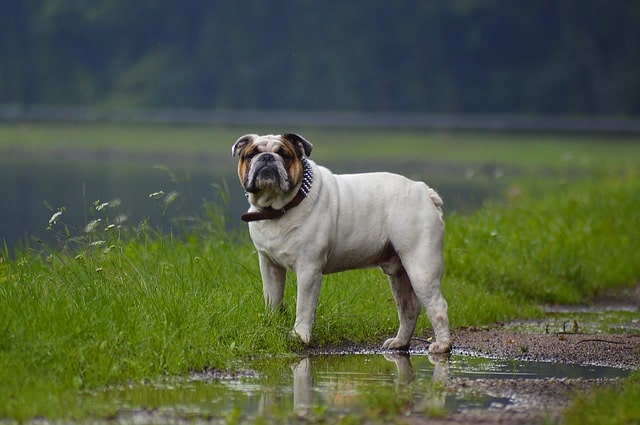
But it’s not just the natural odours that are the problem. The damp conditions provide the perfect environment for yeast and bacteria to thrive, particularly in the areas of your dog’s body that are already warm and moist, such as their ears or the folds of their skin. This can lead to infections, bringing a new level of bad smells.
Solution: Try to keep your dog as dry as possible. After a walk in humid conditions, give them a quick rub down with a towel, making sure to get into all those nooks and crannies.
2. It’s the Polluted Environment.
We all know dogs have a penchant for rolling in things they shouldn’t. From mud puddles to unidentified substances on the grass, if it smells interesting, your dog will probably want to get up close and personal with it.
Mud and dirt can carry a variety of odours, from the relatively harmless ‘wet dog’ smell to stronger, more pungent odours from organic material in the soil.
Outdoor pollutants like car exhaust, pollen, and other environmental contaminants can cling to your dog’s fur, creating a cocktail of unpleasant smells.
Then there’s the matter of other animals. Dogs are naturally curious creatures, and they won’t think twice about investigating the faecal matter or urine of other animals they come across on their travels.
Solution: Keep a close eye on your dog while they’re outside. If you can prevent them from rolling in something smelly in the first place, you’ll save yourself a lot of trouble later on.
3. It’s Because of Allergies and Ear Infections.
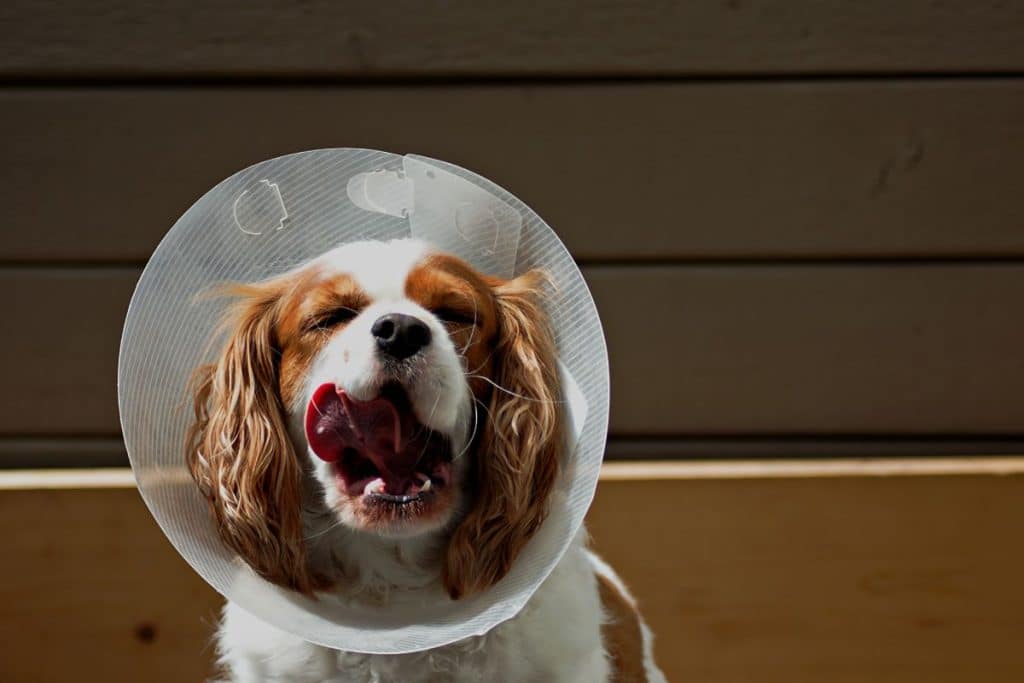
One of the most common symptoms of allergies in dogs is skin irritation, which can lead to scratching, licking, and, eventually, a bad odour.
If you notice your dog scratching more than usual or their skin seems irritated, it’s important to speak to a vet and resolve your pooch’s discomfort, if nothing else.
On the other hand, the warm and moist environment of a dog’s ear canal is the perfect breeding ground for bacteria and yeast. An infection can quickly lead to a foul-smelling discharge. Breeds with floppy ears are particularly prone to ear infections, but any dog can be affected.
4. It’s Specific to Your Dog’s Breed.
Finally, it’s worth noting that some dog breeds are more prone to picking up outdoor odours than others.
Breeds with long, thick fur are more likely to trap dirt and moisture, while breeds with skin folds or droopy ears can provide the perfect environment for bacteria and yeast to flourish.
That’s not to say that these breeds are ‘dirtier’ than others; they just require a bit more maintenance to keep them smelling fresh. Regular grooming, including brushing and baths, can help to remove dirt, debris, and any lingering odours from their fur.
5. It’s their Diet.
From bad breath caused by dental problems to foul-smelling flatulence caused by an intolerance to an item in their diet; our adorable furry friends can produce quite the unpleasant aroma. It may be that your dog smells anyway but in contrast to the fresh air from outside these stenches are more noticeable.

How do you get rid of smelly dog odour?
1. Regular Grooming and Baths
Consistency is key when it comes to managing odours. Establish a regular grooming routine to remove dirt, debris, and loose fur. This not only helps to minimise odours but also promotes a healthier coat and skin.
Baths are crucial, too, but be cautious not to overdo it, as excessive bathing can strip away natural oils, leading to dry skin and potential irritation.
Also, use a dog-specific shampoo and ensure you rinse thoroughly.
2. Completely Dry Your Dog Off
After a bath or a wet walk, dry your dog completely. Moisture trapped in the fur or skin folds can lead to nasty smells and potential skin issues.
Pay extra attention to areas like ears, paws, and skin folds. A good towel dry, followed by a gentle blow dry (in a cool setting), can do wonders.
3. Using Dog Wipes or Paw Cleaners
For those times when a full bath isn’t necessary (or convenient, like Shiba Inu), dog wipes can be a lifesaver. They are perfect for a quick clean-up after a walk, helping to remove dirt and neutralise odours.
Ensure to use a product formulated for dogs to maintain their skin’s pH balance. For muddy paws, a paw cleaner can help remove dirt and bacteria before they can spread through your home.
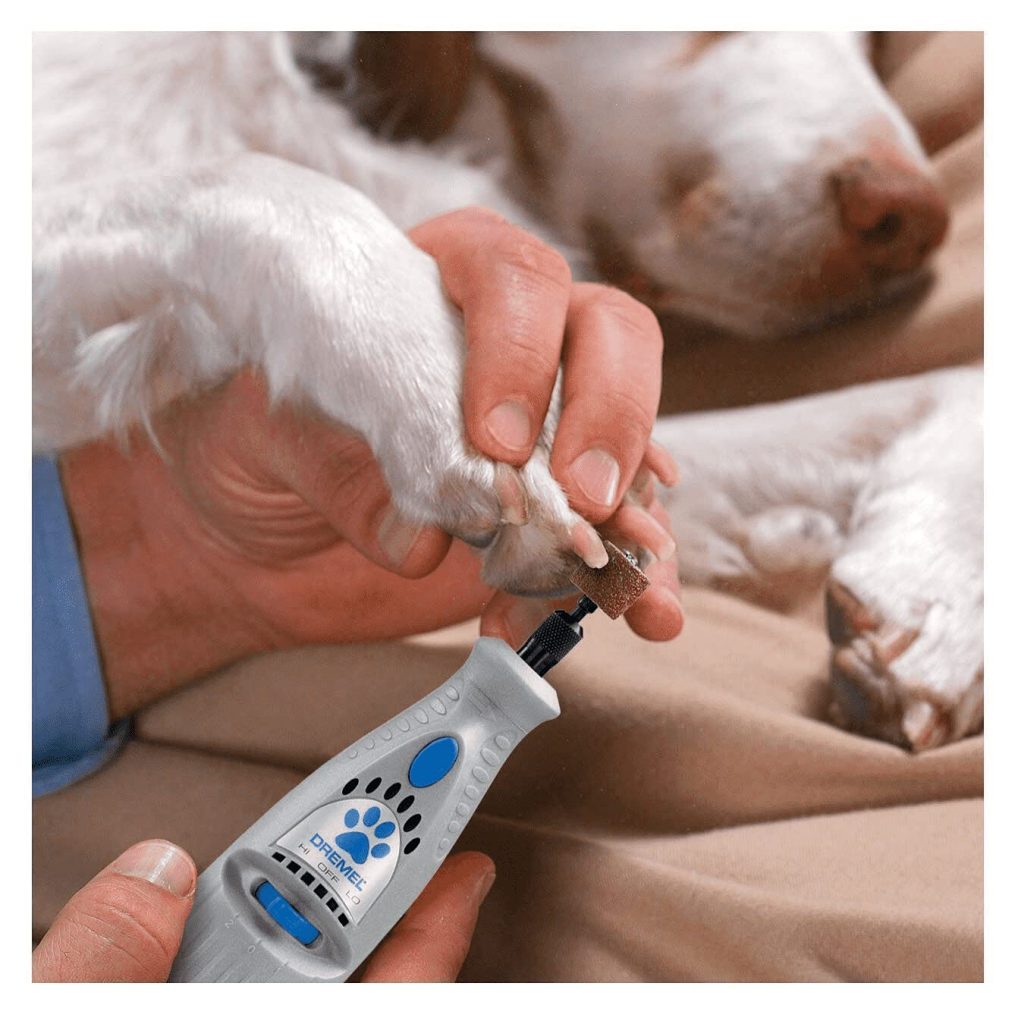
4. Keeping the Outdoor Environment Clean
Your dog’s outdoor play area should be kept clean to minimise odours. Regularly pick up and properly dispose of any faecal matter, and ensure the area is free from rubbish or other potentially smelly items.
5. Keeping Your Dog’s Bedding Clean
Wash your dog’s bedding regularly to remove dirt, hair, and odours. If your dog has a favourite blanket or toy, don’t forget to wash these too!
Keeping their sleeping area free of bacteria and foul smells will stop these odours from lingering in your house.
6. Buy a Dog Coat.
One of the easiest ways to toggle the post-walk smell is by investing in a dog coat that can be removed when you return home. There are so many options for dog coats- from budget to more expensive options.
But the main thing is that the coat will act as a barrier between your dog’s fur and the smells of the great outdoors. Additionally, the cost will stop your dog from getting wet, preventing nasty wet dog smells when the water reacts with the microorganisms in your dog’s fur.
7. Stay at Home During Rains
This is easier said than done if you only have a short window in your day to walk your dog, but if possible, try to avoid walking your dog in the rain.
When do you need to see a vet?
While many odours can be managed at home, sometimes a bad smell can indicate an underlying health issue. Here are some signs that it’s time to consult your veterinarian:
Persistent Bad Odour
If the smell persists despite your best cleaning efforts, or if it returns quickly after grooming, it could be a sign of a skin condition or infection that requires medical attention.
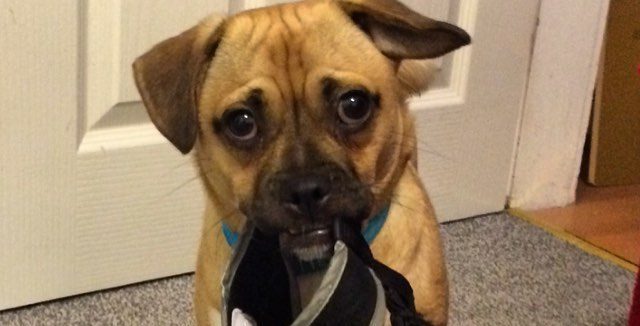
Changes in Skin or Coat
Look out for changes in your dog’s skin or coat, such as redness, bald patches, or a greasy or scaly appearance. These could be signs of an allergy, hormonal imbalance, or other medical conditions.
Scratching, Licking, or Other Signs of Discomfort
If your dog is scratching excessively, licking themselves, or showing other signs of discomfort, it could indicate an allergy, infection, or other issues that need addressing.
Ear Odour or Discharge
Bad smells coming from the ears or any sign of discharge can indicate an ear infection. This requires veterinary attention to prevent further complications.
Bad Breath
While not directly related to outdoor odours, persistent bad breath can indicate dental or other internal problems. Regular dental checkups and cleanings are crucial for maintaining your dog’s health.
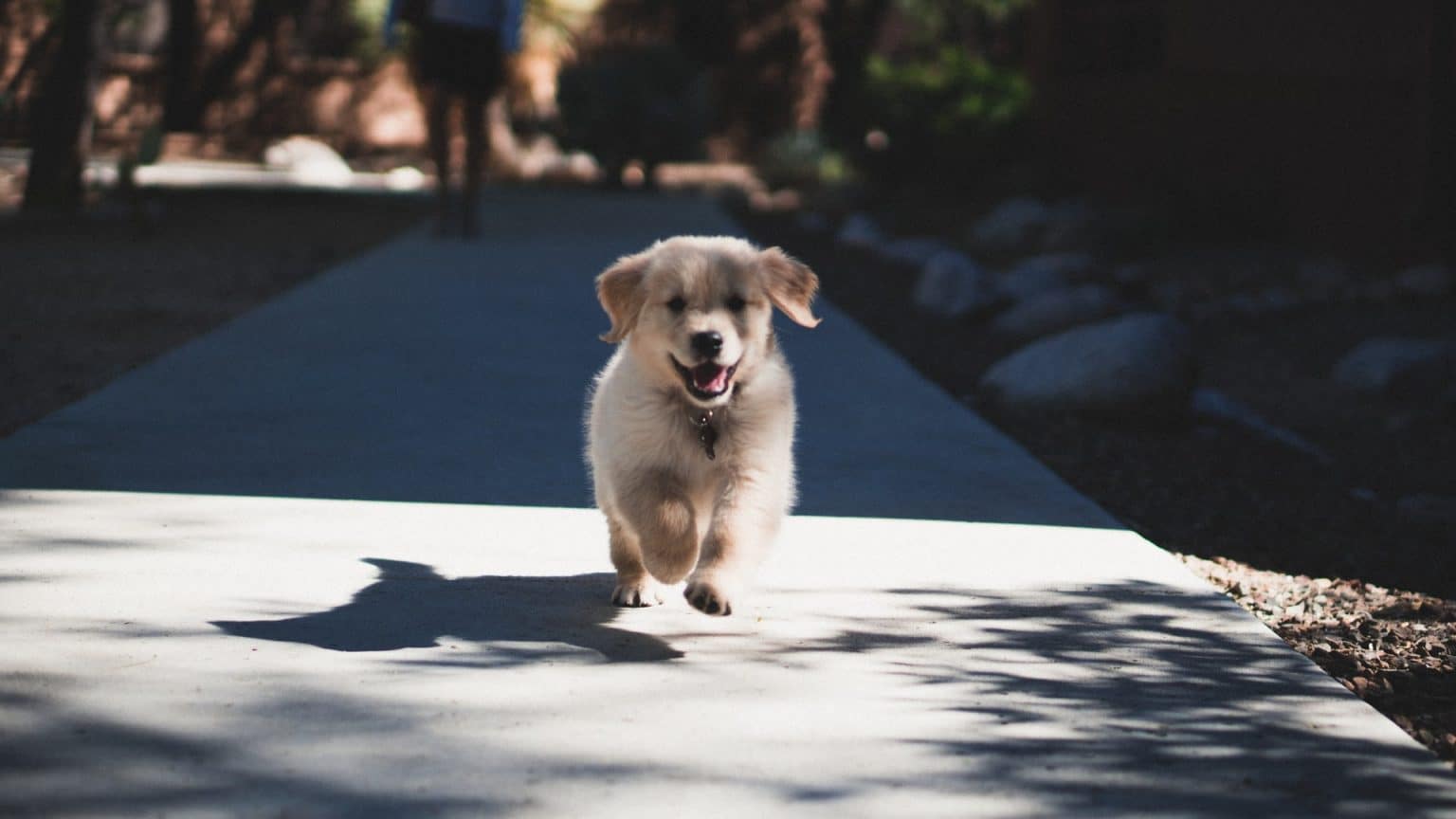
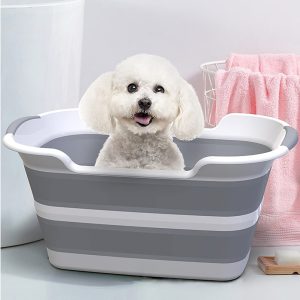
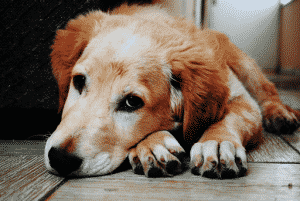
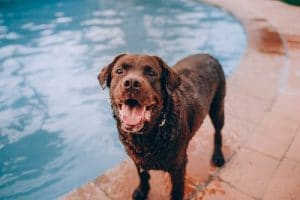
Pingback: Why do Dogs Stink After Being Outside: Sniff Out the Truth – Pet Zesty
I agree, but both my dogs reek after a very short time in the sun. And they are dry, not wet.